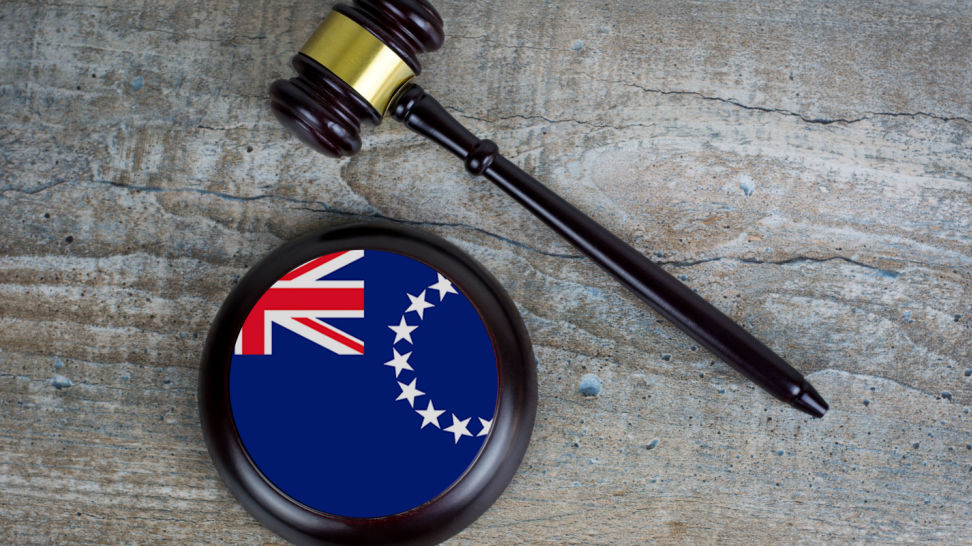In movies and TV shows, offshore trusts are usually reserved for the shady types – characters with ill intentions or something to hide. But in reality, offshore trusts are a legitimate, legal, and safe way to protect your assets.
In fact, when set up properly, offshore trusts may be one of the safest options for protecting your wealth, not just in your lifetime but for generations to come. Offshore trusts help shield your fortune from creditors, lawsuits, malpractice claims, court orders, and other types of liability and seizure. They could be the last line of defense between your family and financial ruin.
But the trick with offshore asset protection is you have to start early. If your assets have already been exposed to legal risk, it may be too late to protect them offshore.
So, when should you start thinking about offshore asset protection? As soon as you have something worth protecting. A sound asset protection strategy is a critical part of any estate plan. It’s important to work with an experienced asset protection lawyer to set up your offshore trust in a way that champions you and your family’s best interests.
What Is an Offshore Asset Protection Trust?
When you set up an offshore asset protection trust, you create a legal entity in another country that’s subject to that country’s laws. Then you transfer your assets to that entity. As a result, you no longer legally own those assets and therefore they cannot be taken away by a creditor of yours.
You must choose a local trustee to manage your offshore trust in that country. Finally, you appoint yourself (or your family, if you wish) as the beneficiary of the trust.
With this framework in place, if a plaintiff or creditor tries to satisfy a judgment against you in your home country, they cannot reach any assets that you’ve legitimately transferred to an offshore trust. Even U.S. courts don’t have the authority to overcome these types of protections.
If your creditors wanted to go after your offshore assets, they’d have to file a separate lawsuit in the country where your assets are held. This is extremely difficult in countries with strong asset protection laws, so your creditors would face an uphill challenge and a legal system sympathetic to your interests in order to reach your offshore assets.
But if the thought of transferring ownership of your assets makes you nervous, you’re not alone. Fortunately, a properly set up offshore trust has legal protections in place that help you maintain control over your assets and manage them as you wish. This includes:
- Appointing a reputable local trustee you trust to carry out your wishes
- Structuring the terms of your trust to support your vision and goals
- Choosing a trust protector to step in if the trustee goes off track
Depending on the country you choose to put your assets, you’ll be investing in robust systems put in place specifically to protect your assets in this way. However, you must work with an experienced professional in order to set up these terms exactly the way you want.
Why Do People Use Offshore Trusts?
Offshore asset protection is not about breaking laws or avoiding taxes, though many countries offer attractive tax benefits for investing on their shores. Instead, offshore trusts are best for legally protecting your wealth from your risk, or liability.
The greater your wealth, the more onerous your risk – not to mention your liability insurance. Lawsuits, malpractice claims, alimony disputes, and seizures by creditors can all threaten your assets. When assets are legally tied to your name, creditors can “reach” those assets and use them to satisfy your debts. If you get sued, a plaintiff can try to use your assets to satisfy the judgment. You may have to pay out cash or liquidate your tangible assets.
Asset protection is important for high-earning professionals like lawyers, doctors, property developers, accountants, architects, contractors, business owners, and entrepreneurs. Just because you face legal risks doesn’t mean you have to put your entire fortune on the line.
In many cases, setting up a business isn’t enough to shield your personal wealth from risk.
Even if you own and operate a business separate from your personal identity, courts could still “pierce the corporate veil” to satisfy your business debts with your personal assets. That means even with a corporate structure in place, your personal assets could be at legal risk. A single business venture could threaten your entire wealth.
Offshore trusts are specifically made for asset protection. Countries that specialize in offshore trusts have strong legal frameworks in place to protect the wealth of their offshore investors. That makes offshore trusts even more robust at shielding your fortune compared to limited partnerships, limited liability corporations (LLCs), domestic trusts, or other corporate entities.
Is An Offshore Trust a Safe Place to Put Your Assets?
Yes – offshore trusts can be extremely safe, especially if you work with an experienced international asset protection attorney to set up your trust.
Countries with strong offshore asset protection laws usually offer:
- Airtight privacy protections for trust grantors, beneficiaries, and assets,
- Regulatory policies and courts that favor foreign investor trusts,
- Advantageous tax policies and local tax exemptions, and
- Protection from asset seizures ordered by foreign or U.S. courts.
When it comes to offshore asset protection, one size doesn’t fit every situation. The greater the clarity of intent and detail in your deed of trust, the better your appointed trustee can follow your wishes. Your wealth is your future and your legacy – you deserve an approach personalized to your goals, not a cookie-cutter plan made with just anyone in mind.
When you consult with a lawyer to navigate the complex world of offshore asset protection, they’ll help you cover all your bases, communicate your intentions, implement the most effective strategies, and avoid common pitfalls. A knowledgeable attorney can guide you to a country with an advantageous legal system and a reputable local trustee you can trust. They can help you write your deed of trust in a way that makes you feel secure in your future.
What Are the Disadvantages of Setting up an Offshore Trust?
The primary disadvantage of putting your assets into a trust is that you no longer hold direct legal title over them. Legally, those assets no longer belong to you. Instead, they belong to the trust.
The idea of letting go of ownership over your assets like this can present a challenge, especially when it also involves putting someone else across the world in charge of your wealth.
This might feel counterintuitive, but in many cases, offshore asset protection can actually be safer for your assets compared to keeping ownership under your own name. By severing the legal connection you had with your assets, you also separate them from your risk. Meanwhile, the offshore trust you set up will continue to handle your assets the way you would’ve wished. You continue to enjoy your wealth and fortune without putting it all on the line.
What Is the Best Country to Set up an Offshore Trust?
If you want to set up an offshore trust to protect your assets, what’s the best country to do it? Fortunately, you have a number of attractive options to choose from, such as:
- The Cook Islands have extremely protective laws when it comes to defending yourself against court-ordered asset seizures or forfeitures. When you transfer your assets to a Cook Islands trust, you benefit from favorable tax policies, defendant-friendly courts, flexible trust structures, and strong privacy protections.
- St. Kitts and Nevis is a sovereign island nation that is a member of the British Commonwealth, with a legal system built on British common law. The country charges no income tax, estate tax, inheritance tax, or gift tax and is committed to secrecy. You can even get citizenship through investment in St. Kitts and Nevis.
- Antigua and Barbuda is a Caribbean country in the British Commonwealth with a robust framework for foreign trusts. In Antigua, you can explicitly set your trust deed to last for up to 200 years, ensuring your family’s future for multiple generations.
Each country’s policies come with different benefits. Your lawyer can help you determine which legal framework is the best option for you. Once you decide on the jurisdiction, your attorney can then guide you on what type of trust to create and the terms to put in your trust deed.
How Do You Set up an Offshore Trust Safely?
First and foremost, it’s important to get started as early as possible when it comes to asset protection. If you’re already facing legal issues or court orders, you may not be able to legally transfer your assets offshore. Offshore asset protection is a precautionary measure.
Almost every country has a statute of limitations – usually 2 years – that allows creditors to challenge asset transfers as fraudulent. During this time, if your creditors can prove that you transferred the assets to avoid liability in a specific case, that could compromise the asset protection measures you put in place.
The second part of setting up a safe offshore trust is working with a knowledgeable attorney who can make sure you structure your wealth exactly the way you want it. At Blake Harris Law, we can help. Contact us now to get started.


